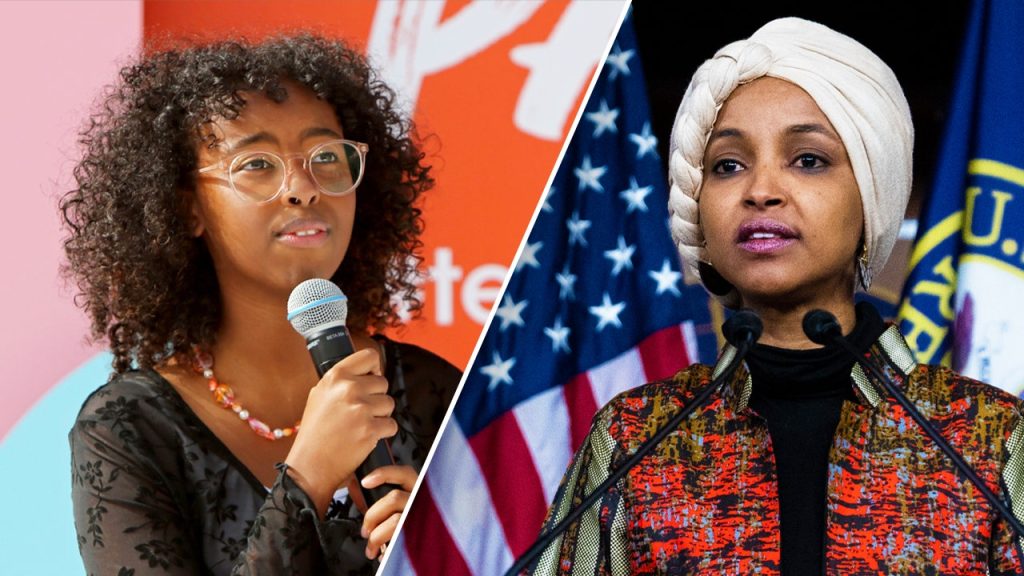Social media was abuzz after Isra Hirsi, daughter of Rep. Ilhan Omar, revealed she was suspended from Barnard College due to her involvement in an anti-Israel protest at Columbia University. Hirsi, who is an organizer with CU Apartheid Divest and Gaza Solidarity Encampment, expressed her determination to stand in solidarity with Palestinians and make demands for divestment and transparency regarding Columbia’s investments. Critics pointed out that Hirsi’s social media profile featured the hammer and sickle symbol, a communist emblem, and raised concerns about her activism and support for terrorist organizations like Hamas and Iran.
Various activists and commentators called for Hirsi’s expulsion from Columbia, citing concerns about her promotion of antisemitism and terrorism. However, some, including Rep. Rashida Tlaib, showed support for Hirsi and condemned the retaliation against students using their constitutional rights to protest. The protest at Columbia University, where students camped out to demand divestment from companies with ties to Israel, coincided with university president Nemat Shafik testifying before Congress about antisemitism.
Following multiple requests to leave the unauthorized encampment, Barnard College issued written warnings and ultimatums to students participating in the protest. Ultimately, Hirsi and two other Barnard students were placed on interim suspension for their involvement in the protest. Police were called to clear the encampment from the university campus, leading to the removal of protesters and arrests. Shafik defended the actions as necessary due to safety concerns and violations of campus rules and policies.
The suspension of Hirsi sparked debates among activists, commentators, and politicians regarding free speech, activism, and the boundaries of political protest on college campuses. While some viewed Hirsi’s actions as courageous and necessary for advocating human rights and social justice, others criticized her for supporting terrorist organizations and promoting antisemitism. The incident reignited discussions about freedom of speech, political activism, and the appropriate responses to controversial protests on university campuses.
Despite facing suspension and backlash for her involvement in the protest, Hirsi continued to stand firm in her beliefs and demands for social justice and accountability at Columbia University. The incident highlighted the complexities and challenges associated with balancing free speech rights, political activism, and campus policies in the context of contentious social justice issues like the Israeli-Palestinian conflict. Moving forward, stakeholders will continue to grapple with how to navigate such controversies and promote dialogue, understanding, and respect among diverse perspectives and opinions.













